They have much to offer each other, Marcel van Bruggen of vanRijsingenfreshservice and Arend van den Berg of Bikl Foods quickly realized when they got talking. So much so that the vegetable processor and pickled product maker, both based in the Netherlands, are now joining forces to market fresh pickled vegetables to the food service and retail sectors. "VanRijsingenfreshservice can offer Bikl efficient processes, and Bikl has factory filling," Marcel explains the benefits of their partnership.
The food service channel is new to vanRijsingenfreshservice, which usually focuses on peeled, sliced, and packaged vegetables for the food industry. The company will, of course, remain active there where vegetable availability is currently a hot topic, says Marcel. "Failed onion crops and cucumber shortages affect us too. It has been a long time since we've been in a situation where there's no Dutch production in prospect at this time of year. Spanish cucumbers usually run out in March, while Dutch ones come onto the market in December." He expects there will be enough Dutch cucumbers by April, after the gap between Spanish and Dutch production.
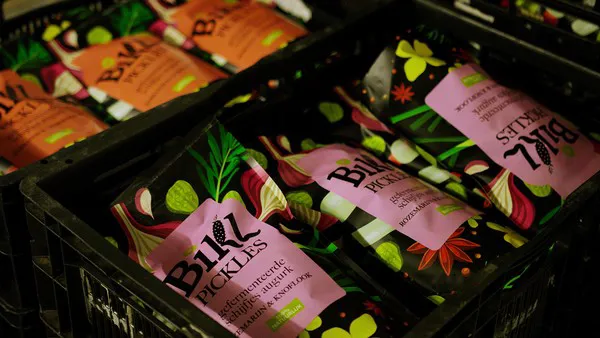
Flavorful
Bikl Foods focuses on freshly pickled products, something not yet common in the Netherlands but with a growing market. "The Netherlands is used to pasteurized sweet and sour pickled products in jars," Arend begins. "We pickle or ferment the fresh product. Hospitality chains, caterers, and meal manufacturers are demanding these. The product’s so pure and flavorful; you can't compare it to what you find in jars." Arend points to fresh versus canned olives or fresh versus canned pineapples as similar examples. "Twenty years ago, people in the Netherlands ate only canned olives. Now there's a fresh market. We expect the same development for pickled products," he says.
The growing interest in these pickled vegetables means Bikl has to expand its production process, not an easy thing to do in-house, Arend points out. "The production process is a craft that requires a lot of investment in processing and certifications. vanRijsingenfreshservice already has all that perfectly in place. It's not something you can just do on the side. The partnership, with vanRijsingenfreshservice taking care of production, lets us concentrate more on sales. What could be more sustainable, efficient, and better for quality than cutting, pickling, and packaging vegetables in one place? It avoids moving the processed vegetables around, is more economical, and above all, benefits quality. Doing everything at vanRijsingenfreshservice results in a fantastic end product."
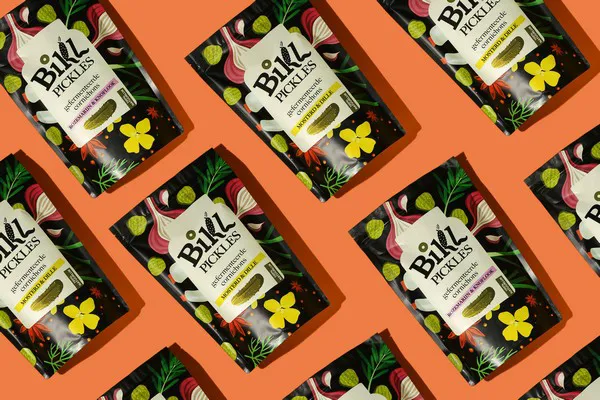
Flavoring
Pickles – fermented and vinegar-pickled vegetables - used to be made a lot in the Netherlands. They were considered a way to preserve fresh vegetables for the winter. Arend notices that the product is now mainly used as a flavoring. Pickled vegetables used to be eaten outside the harvest season, while now there is high demand for these made from in-season vegetables. There is more of a pickling culture in, say, Eastern Europe. "Our Polish production managers were excited about the prospect of pickling and fermentation. Here and at Bikl, there was plenty of experimentation to develop ideas. It's a true culture thing," says Marcel.
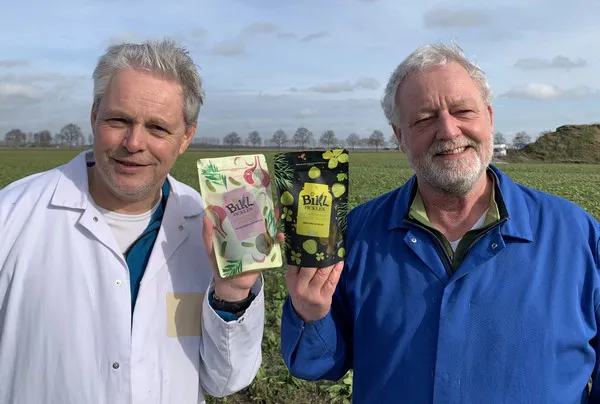
Unburdening
Marcel and Arend want to focus mainly on entirely unburdening restaurants with these fresh pickled vegetables. One way they do this is by using containers suitable for use directly in European standard professional kitchenware. The freshly pickled products are uniform too. Something that is unlikely if, for example, 40 branches of a restaurant chain all make their own sweet and sour onions. Some will be more experienced than others, Arend says. Plus, the fixed price provides a stable starting point for cost price calculations, which Marcel points out is difficult to do in-house due to fluctuating raw material prices. "We can relieve those eateries that pickle their own products or offer them a new product that matches their menu."
The range i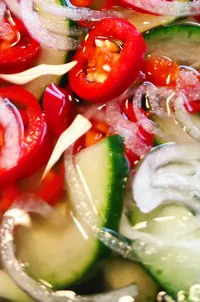 ncludes familiar products like pickles, cucumbers, and sweet sour. But, according to Marcel, they try to find less obvious vegetables or combinations too. Examples include red cabbage with ginger syrup, red onion pickled with two different types of vinegar, or pickled, fresh pointed cabbage. "The pickled cabbage is super fresh and cut in a way that's crunchy and velvety smooth. It has lots of uses: a garnish with a mixed grill dish or on a sandwich. You can even make a salad dressing with the pickle juice," continues Arend.
ncludes familiar products like pickles, cucumbers, and sweet sour. But, according to Marcel, they try to find less obvious vegetables or combinations too. Examples include red cabbage with ginger syrup, red onion pickled with two different types of vinegar, or pickled, fresh pointed cabbage. "The pickled cabbage is super fresh and cut in a way that's crunchy and velvety smooth. It has lots of uses: a garnish with a mixed grill dish or on a sandwich. You can even make a salad dressing with the pickle juice," continues Arend.
Avoiding artificial additives while pickling and fermenting vegetables means the focus is on natural products. "We use natural vinegar, cane sugar, not the sweetener often used in pickling. We also don't add dyes or preservatives. It's a genuine 100% natural product that still has a long shelf life," Marcel and Arend conclude.
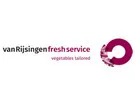 Marcel van Bruggen
Marcel van Bruggen
m.vanbruggen@vr-freshservice.com
vanRijsingenfreshservice
info@vr-freshservice.com
www.vr-freshservice.com
Arend van den Berg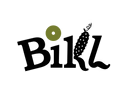 arend.vandenberg@biklfoods.nl
arend.vandenberg@biklfoods.nl
Ferm Foods B.V.
klanten@biklfoods.nl
www.biklfoods.nl
